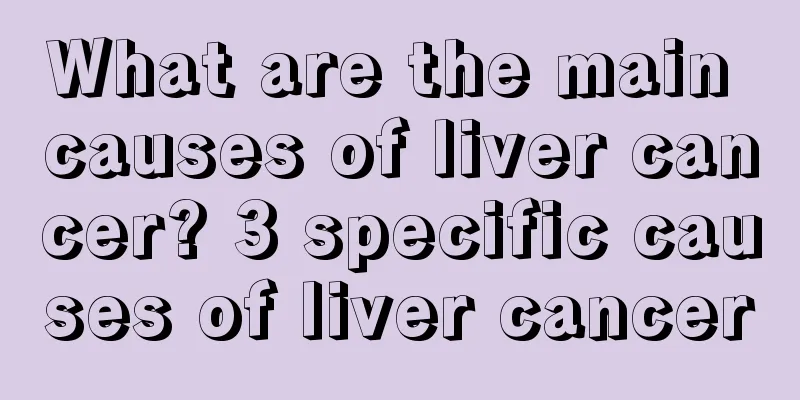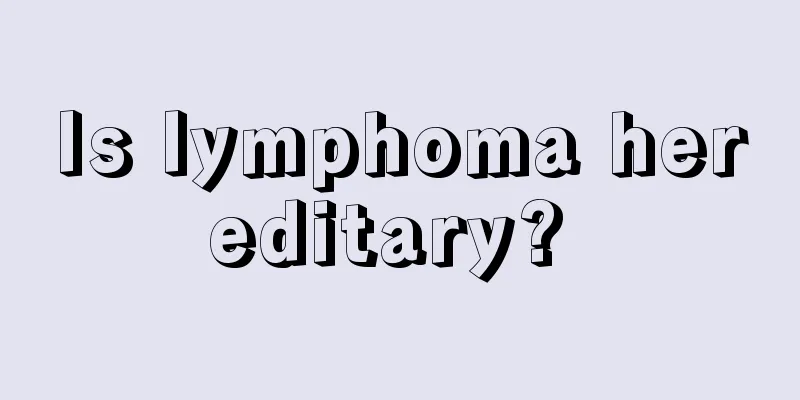Comparison of three methods for treating colon cancer

|
There are three common methods for treating colon cancer: immunotherapy, Chinese medicine, and chemotherapy. Chemotherapy for patients whose tumors cannot be removed can alleviate symptoms and control tumor growth, but the effect is poor and short-lived. If the patient is in poor general condition, the side effects are significant and the condition is aggravated, so it is not suitable for use. 1. Immunotherapy It can improve the patient's anti-tumor ability. It has developed rapidly in recent years. Interferon, interleukin, transfer factor, tumor necrosis factor, etc. have been gradually and widely used. They can not only improve the patient's immune ability, but also cooperate with chemotherapy. 2. Traditional Chinese medicine treatment It can improve symptoms, enhance the body's disease resistance, and reduce the side effects of radiotherapy and chemotherapy. Some Chinese medicines have direct anti-cancer effects, such as Oldenlandia diffusa, Scutellaria barbata, Trichosanthes kirilowii, Solanum nigrum, etc. Ganoderma lucidum preparations can significantly improve the patient's immune function. Currently, there is only one Ganoderma lucidum medicine with a national medicine approval number on the market, "Shuangling Guben San". When using the medicine, you can take both syndrome differentiation and disease differentiation into consideration, and add medicines for clearing away heat and detoxifying, promoting blood circulation, nourishing yin and blood, removing phlegm and dispersing nodules, and regulating the spleen and stomach. 3. Chemotherapy Patients after surgery can generally use 2 to 3 courses of chemotherapy within one to one and a half years. The commonly used drugs are mainly 5-fluorouracil (5-FU), which can also be combined with mitomycin, cyclophosphamide, etc. The total amount of 5-FU can be 7 to 10 grams per course. It can be administered orally or intravenously. It is best to add it to glucose solution and drip it, 250 mg each time, once a day or every other day. If the reaction is large, such as nausea, loss of appetite, weakness, decreased white blood cell and platelet counts, etc., the dosage can be reduced each time, or the interval can be increased. The drug can be stopped in time when bone marrow suppression is obvious. The gastrointestinal reaction of oral administration is greater than that of intravenous administration, but the bone marrow suppression reaction is mild. During the medication, supportive treatment must be paid attention to, and drugs that reduce side effects should be used. Chemotherapy for patients whose tumors cannot be removed can alleviate symptoms and control tumor growth, but the effect is poor and short-lived. If the patient's general condition is poor, the side effects are significant and the condition is aggravated. It is not suitable for use. If you have any questions, you can also consult our online consulting experts Colorectal cancer: http://www..com.cn/zhongliu/dca/ |
<<: What are the specific symptoms of lung cancer?
>>: Key points for home care for colon cancer
Recommend
What is the chance of nasopharyngeal carcinoma recurring after radiotherapy?
I believe that nasopharyngeal cancer patients and...
How much does chemotherapy cost for mid- to late-stage skin cancer
How much does chemotherapy cost for late-stage sk...
Common symptoms of colon cancer that everyone needs to pay attention to
In real life, many people are familiar with the d...
Can vitiligo be cured?
I believe many people are familiar with the name ...
Occupational disease hazards include
With the development of society, many people will...
Lip hair removal
When men reach a certain age, they will have many...
Ureaplasma urealyticum is positive
Ureaplasma urealyticum is a type of mycoplasma. I...
What should I pay attention to during gastric insufflation examination
Gastric insufflation test is mainly used to detec...
What are the treatments for cervical herniation?
Patients with cervical spondylosis must pay atten...
What drugs are effective in treating lymphoma?
Can traditional Chinese medicine treat lymphoma? ...
How terrible is teratoma during pregnancy
Teratomas originate from potentially multifunctio...
Diet after rectal cancer surgery is very effective for patients to recover early
In daily life, the occurrence of rectal cancer is...
How to make black rice porridge
Black rice is rich in nutrients. The most common ...
How to make your own cervical pillow
The pain caused by cervical stiff neck is very se...
Can I drink soy milk on an empty stomach when I wake up early?
A cup of soy milk in the morning can bring people...









